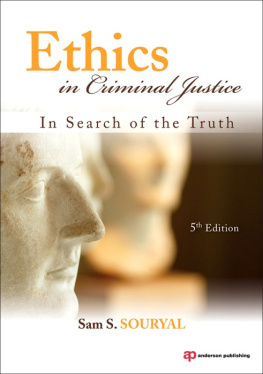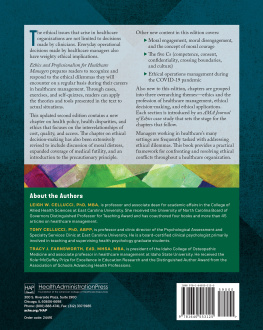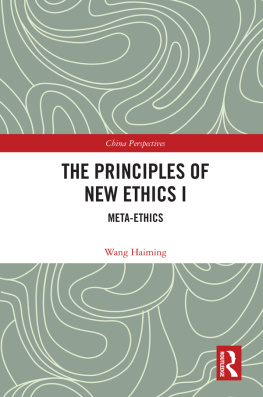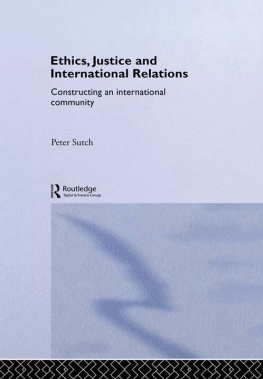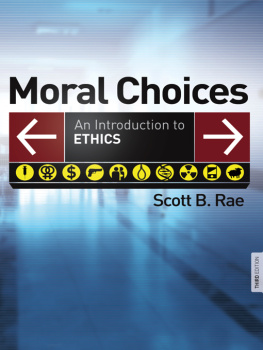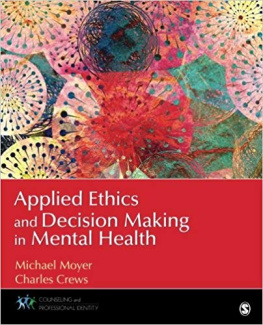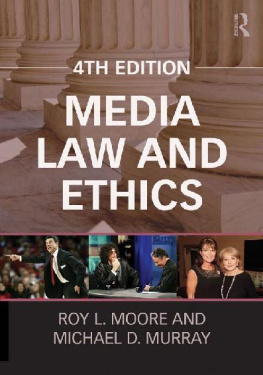ETHICS in CRIMINAL JUSTICE
In Search of the Truth
Fifth Edition
Sam S. Souryal
Sam Houston State University
Anderson Publishing
Front matter
ETHICS in CRIMINAL JUSTICE
In Search of the Truth
Sam S. Souryal
Sam Houston State University

 | AMSTERDAM BOSTON HEIDELBERG LONDON
NEW YORK OXFORD PARIS SAN DIEGO
SAN FRANCISCO SINGAPORE SYDNEY TOKYO Anderson Publishing is an imprint of Elsevier |  |
Copyright
Anderson Publishing is an imprint of Elsevier
30 Corporate Drive, Suite 400, Burlington, MA 01803, USA
2011 Elsevier, Inc. All rights reserved.
No part of this publication may be reproduced or transmitted in any form or by any means, electronic or mechanical, including photocopying, recording, or any information storage and retrieval system, without permission in writing from the publisher. Details on how to seek permission, further information about the Publishers permissions policies and our arrangements with organizations such as the Copyright Clearance Center and the Copyright Licensing Agency, can be found at our website: www.elsevier.com/permissions.
This book and the individual contributions contained in it are protected under copyright by the Publisher (other than as may be noted herein).
Notices
Knowledge and best practice in this field are constantly changing. As new research and experience broaden our understanding, changes in research methods or professional practices, may become necessary. Practitioners and researchers must always rely on their own experience and knowledge in evaluating and using any information or methods described herein. In using such information or methods they should be mindful of their own safety and the safety of others, including parties for whom they have a professional responsibility.
To the fullest extent of the law, neither the Publisher nor the authors, contributors, or editors, assume any liability for any injury and/or damage to persons or property as a matter of products liability, negligence or otherwise, or from any use or operation of any methods, products, instructions, or ideas contained in the material herein.
Library of Congress Cataloging-in-Publication Data
Application submitted
British Library Cataloguing-in-Publication Data
A catalogue record for this book is available from the British Library.
ISBN: 978-1-4377-5590-9
Printed in the United States of America
11 12 13 14 15 10 9 8 7 6 5 4 3 2 1

For information on all Anderson publications
visit our website at www.elsevierdirect.com
Dedication
In memory of Dr. T. Henry Souryal, my mentor, my friend, and my brother. He was not ours and he was not mine. He was a gift from God who succeeded a little bit in making the world a little better and when he was finished, he silently yet gallantly went Home.
Foreword
At the heart of every social institution is at least one paradox. The paradox of the criminal justice system is the working assumption that good will result from punishment. This idea, a perversion of the philosophic utilitarianism of Mill and Bentham that shaped Anglo American criminal law, substitutes ex post facto retribution for prevention, policy for reasoning, and organizational culture for human concern. To conceal such paradoxes, mystifying ideologies are produced and reproduced. Thus, in the American criminal justice system a deep and pervasive common belief obtains that pragmatism and diverse forms of expediency are the only principles available. This argument appears in many guises: from the cynical view that nothing works, to the intellectually flawed presumption that IQ and/or some pattern of genes create criminals or career criminals. Perhaps the most irresponsible guise is the argument urging still more of the same; that is, more prisons, more police, more courts, and more lawyers. Such arguments strongly suggest that our goals are obscured and our purposes lost.
Not only is there a paradox at the heart of the system, but the system also manifests patterned anarchy. Martha Feldman (1989) aptly calls this order without design. This means simply that a system with no overall design can work. The idea that a criminal justice system exists by design, and that it is held together by laws, flowcharts, algorithms, dispositions, and outcomes, is a relatively recent conceit. It is yet to be proven what common values and purposes, other than communicating itself (Luhmann, 1985), bind together this notional system. Perhaps the subsystems are articulated around negotiations over particular cases, shaped by dramaturgical principles of looking good and maintaining respect, and governed by a self-sustaining wish to produce and reproduce uncertainty in outposts. These rules of thumb reflect expediency, pragmatism, and sensitivity to a local political order. This state of affairs, according to Souryal, can and should be altered if one takes ethical principles seriously.
The arguments found in this book, presented in an admirably clear prose style, are courageous and refreshing principles. Souryal urges readers to consider basic ideas and their applications. A humanist, he sees most laws as good, yet people as flawed. They are not flawed in the intrinsic sense of lacking redemption, but rather are ignorant of their own potential and of the essential entailments of humanity. He argues that the humanistic and philosophic bases for decisions be taught explicitly. Although I am sympathetic with this notion, I despair at times. I once asked a criminology class of nearly 200 how many had read Albert Camus, The Stranger (3); Crime and Punishment (5); and how many knew (anything) about the theater of the absurd or surrealism (2). In this vacuous context, how does one critically discuss issues of punishment, of rationality, of the kinds of evil best punished by criminal laws? Unfortunately, I do not consider this ignorance anomalous on modern campuses. If one assumes, as Souryal does, that the humanistic mandate of the social sciences, reflected in the field of criminal justice, is an essential grounding of all serious moral argumentation and enterprise, then the systematic teaching of ethics and ethical questions should have a primary role in any criminal justice curriculum.
Souryal pleads for a humanity entailing a measure of goodness, tolerance, and compassion. He is sensitive to the paradox previously noted, and argues that the way in which the state treats the evil and ignoble is essentially revealing. He urges noble treatment of the ignoble. This may be stated in yet another fashion that builds on the relationship between the self and the other. The criminal, the sick, the ignorant, the mad and sad, and the omnipresent other are essential, for they provide the mirror of ourselves. The others are, metaphorically speaking, the screen upon which dances our selves, dances our often denied and suppressed passions, pain, and failures. The other, at best, represents our choices and our negations. When the United States government wages war to liberate Afghanistan and causes thousands of Afghan deaths as a result of collateral damage, while denying the crying needs of the inner cities of this country, it is making a choice, displaying a value, and casting a vote. Who is the relevant other? What other is denied?
Next page
